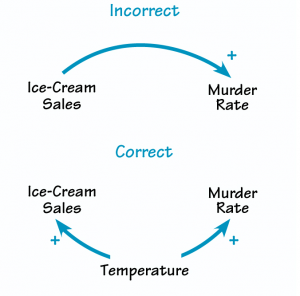
Shownotes
Welcome to Day 1539 of our Wisdom-Trek, and thank you for joining me.
This is Guthrie Chamberlain, Your Guide to Wisdom
Bible Study – Words, Correlation, and Causation – Meditation Monday
Wisdom - the final frontier to true knowledge. Welcome to Wisdom-Trek! Where our mission is to create a legacy of wisdom, to seek out discernment and insights, to boldly grow where few have chosen to grow before. Hello, my friend; I am Guthrie Chamberlain, your captain on our journey to increase Wisdom and Create a Living Legacy. Thank you for joining us today as we explore wisdom on our 2nd millennium of podcasts. This is Day 1539 of our Trek, and it is time for Meditation Monday. Taking time to relax, refocus, and reprioritize our lives is crucial in order to create a living legacy. For you, it may just be time alone for quiet reflection. You may utilize structured meditation practices. In my life, Meditation includes reading and reflecting on God’s Word and in prayer. It is a time to renew my mind, refocus on what is most important, and making sure that I am nurturing my soul, mind, and body. As you come along with me on our trek each Meditation Monday, it is my hope and prayer that you, too, will experience a time for reflection and renewing of your mind.
We are continuing our series this week on Meditation Monday as we focus on Mastering Bible Study through a series of brief insights from Hebrew Scholar, Dr. Michael S. Heiser. Our current insights are focusing on accurately interpreting the Bible. Today let us meditate on:
Bible Study – Words, Correlation, and Causation
· Insight Forty-Five: Words Don’t Mean Anything By Themselves
We all know from experience that the words we use can be understood and intended in different ways. No word means the exact same thing every time it’s used. I love my wife, and I love pizza. The pizza really isn’t giving my wife competition for my attention. My emotional attachment to my wife is of a different nature and intensity than my desire for pizza. I can use the word “love” for both.
What helps us so easily parse a difference here? Real-life. Our experiences provide context. Words don’t mean anything in isolation. They can’t mean anything until they are put in context. Context determines word meaning: nothing else does.
For some reason, this obvious truth gets lost for some Bible students who are doing word studies. The process goes something like this: Research tools help us identify the original language word behind an English word that draws our interest in a particular verse. Then we look up that word in a word study dictionary. So far, so good. Here’s where many Bible students go off the tracks. Students often use these dictionaries to discover what a Greek or Hebrew word can mean, latch on to an interesting option, and mine for verses where the word has the meaning we’re looking for. The fact that the word can have a given meaning, and does in other verses, justifies (in their minds) assigning that meaning to the word in the verse under scrutiny.

That isn’t word study. That’s cherry-picking a meaning from a list of possibilities and considering other contexts (other verses) in place of the word’s context in your passage. Seeing that clearly should remind us that a word’s meaning in one instance may be different in another.
Real word studies take time. There is no substitute for discerning the contexts that come to bear on the word you want to study and then, one by one, testing whether other meanings are possible in that same setting. Context makes that determination, not a list of possible meanings in a dictionary.
· Insight Forty-Six: Don’t Confuse Correlation with Causation

Have you ever seen those commercials that string a series of disastrous events together, leading to how buying their product will save you from all the disasters? They’re funny because they exploit connections between seemingly random, unrelated events just to steer you toward a conclusion. As if not liking my haircut will lead to a typhoon. These commercials use nonsequiturs (conclusions that do not logically follow) to make us laugh and remember a product. In that sense, they’re effective.
One of the most common logical fallacies is the confusion of correlation with causation. The misconception is presuming that two things that are related somehow—perhaps by timing, or similarity of appearance or theme—must mean that one causes or leads to the other. Whether you’ve had a formal course in logic or not, you’ve encountered this one. You can find examples of it every day in newspapers, blogs, and of course, commercials. I ran across one recently: in a report about the interesting fact’ that as the shoe sizes of elementary kids increase, so do scores on standardized reading exams. Sure, both studies run simultaneously and even on the same kids correlate, but did one cause the other? Should I despair if my child has small feet? ‘Sally will never be able to read well unless her feet grow.’ I hope you see the error in this thinking.
Confusing correlation and causation can be comical, but it isn’t funny when it shows up in sermons, Sunday school lessons, and Bible study resources. Even doctrinal beliefs can derive from this logical fallacy. One example that I’ve seen repeatedly is the belief that there was a rebellion of one-third of the angels in heaven before the fall, which explains the temptation in Eden. The Bible nowhere teaches such a cause-and-effect. A rebellion of one-third of the angels occurs in Revelation 12:1-9,” ‘here it is connected to the first coming of Jesus and his resurrection (Revelation 12:5), not Eden’. Since Revelation 12:9 mentions the serpent, there is some correlation intended. Very obviously, this rebellion did not precipitate Genesis 3 and the fall.
The point should be clear: we must pause and think carefully about any claim we run across, or pops into our minds, to avoid this fallacy.
Study this Book of Instruction continually. Meditate on it day and night so you will be sure to obey everything written in it. Only then will you prosper and succeed in all you do.
That is a wrap for today’s Meditation. Next week we will continue our trek on Meditation Monday as we take time to reflect on what is most important in creating our living legacy. On tomorrow’s trek, we will explore another wisdom quote. This 3-minute wisdom supplement will assist you in becoming healthy, wealthy, and wise each day. Thank you for joining me on this trek called life. Encourage your friends and family to join us and then come along tomorrow for another day of ‘Wisdom-Trek, Creating a Legacy.’

If you would like to listen to any of the past 1538 daily treks or read the daily Journal, they are available at Wisdom-Trek.com. I encourage you to subscribe to Wisdom-Trek on your favorite podcast player so that each day will be downloaded to you automatically.
Thank you for allowing me to be your guide, mentor, and most importantly, I am your friend as I serve you through this Wisdom-Trek podcast and Journal.
As we take this Trek of life together, let us always:
- Live Abundantly (Fully)
- Love Unconditionally
- Listen Intentionally
- Learn Continuously
- Lend to others Generously
- Lead with Integrity
- Leave a Living Legacy Each Day
I am Guthrie Chamberlain….reminding you to ’Keep Moving Forward,’ ‘Enjoy your Journey,’ and ‘Create a Great Day…Everyday’! See you tomorrow!